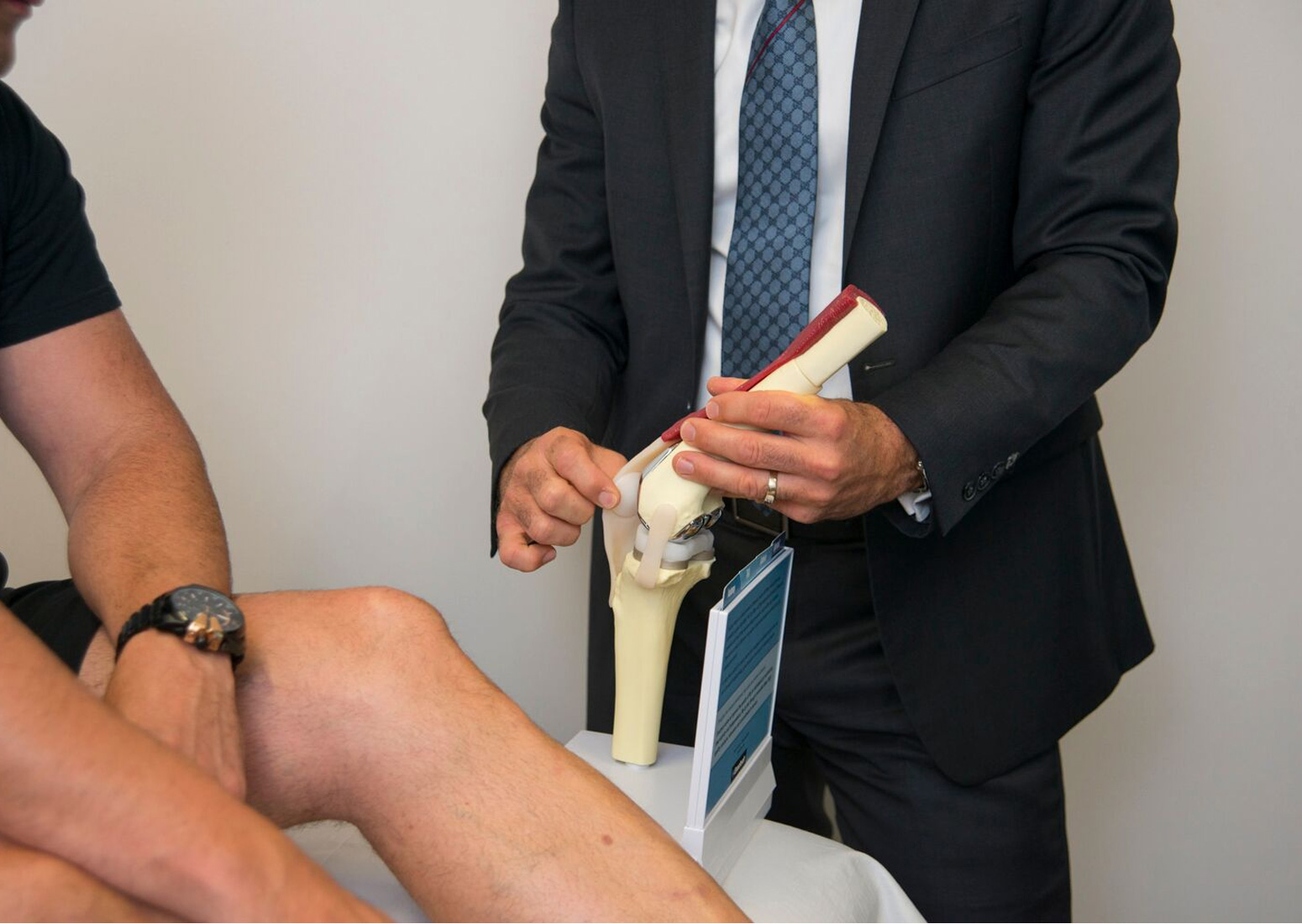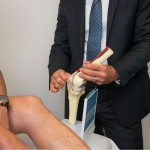
It is common for athletes who engage in high performance sports such as rugby, basketball and netball to sustain injury to the Anterior Cruciate Ligament (ACL). ACL injuries can interfere with normal knee function and stability, meaning everyday life and sporting activities can be painful. Luckily due to advances in surgical and rehabilitation practices most patients are able to recover from their injuries and return to regular daily and sporting activities.
Dr Shidiak’s position as team doctor for the Parramatta Eels and Wentworthville Magpies football club has significantly developed his experience in the treatment of ACL injuries across athletes of all ages and levels of fitness.
What is the Anterior Cruciate Ligament (ACL)?
The ACL is a tough, fibrous band of tissue that connects and stabilises the femur (thigh bone) and tibia (shin bone). Its significance lies with its relationship to normal knee function and stability. It also helps to control the rotation forces developed during side stepping, decelerating suddenly, pivoting and landing from a jump, which is heavily relied upon for athletes and their performance.
What causes the ACL to tear or rupture?
An ACL injury usually occurs through high contact sports such as football, where the ACL ruptures as a result of impact from another player or a twisting injury to the knee. It is also possible to cause further harm from tearing cartilage or damaging the joint surface.
Patients can read more about which sports increase the risk of causing (ACL) injury here.
Symptoms
One of the most common indicators of an ACL injury is described as a loud pop or cracking sound to the knee, commonly followed by a short period of extreme pain. Patients may also experience movement restriction such as having trouble extending the injured knee.
It is common for the injured area to develop substantial swelling soon after the ACL is torn, and if left untreated can develop into hermathrosis (bleeding into the joint space). Dr Shidiak recommends seeking medical attention as soon as possible after an ACL injury.
Operative Management
An injured ACL will often be repaired or reconstructed through surgery. If left untreated, patients pose the risk of developing future meniscus damage or degenerative changes of the knee. Without proper surgery or rehabilitation, the chances for athletes to continue their sporting passions or professional career are much smaller.
The surgical process in which Dr Shidiak follows for ACL reconstructions have been developed and supported over many years. The surgery involves harvesting the patients hamstring tendons from the same knee and utilising these as graft for a new ligament. Tunnels are then drilled in to the tibia and femur and the graft is secured at both ends. It may take 6 months or more for the graft to fully incorporate in the bone, and this is why a strict rehabilitation programme must be followed throughout the post-operative period.
Dr Shidiak will thoroughly discuss any risks or complications with his patients before making the decision whether to have an ACL reconstruction or not.
Some possible but uncommon risks associated with this particular operation can include:
• A break in the kneecap
• Damage to nerves surrounding the knee
• Infection in the knee
• Discomfort around the operated area
• Pain or loss of knee movement
• Knee instability
Non-operative Management
For patients who don’t require a knee reconstruction, they are likely to be treated by physiotherapy to restore motion of the knee. This includes an exercise program to strengthen the quadriceps and hamstring muscles in the thigh to improve coordination and stability. Patients are sometimes recommended to wear a knee brace to help manage their injuries.
To return to sporting and normal functional activities, patients need to follow the guidance of Dr Shidiak. Keeping in mind that non-operative management and rehabilitation may take up to 6 – 12 months.
Combining his passion for sports and his extensive experience in surgical and non-surgical therapy, Dr Shidiak has a high success rate in treating ACL injuries and restoring knee stability – especially for those who wish to return to their elite level sporting commitments. If your injuries require a professional assessment, please arrange an appointment with Dr Shidiak by calling our reception on 02 9806 3333.


